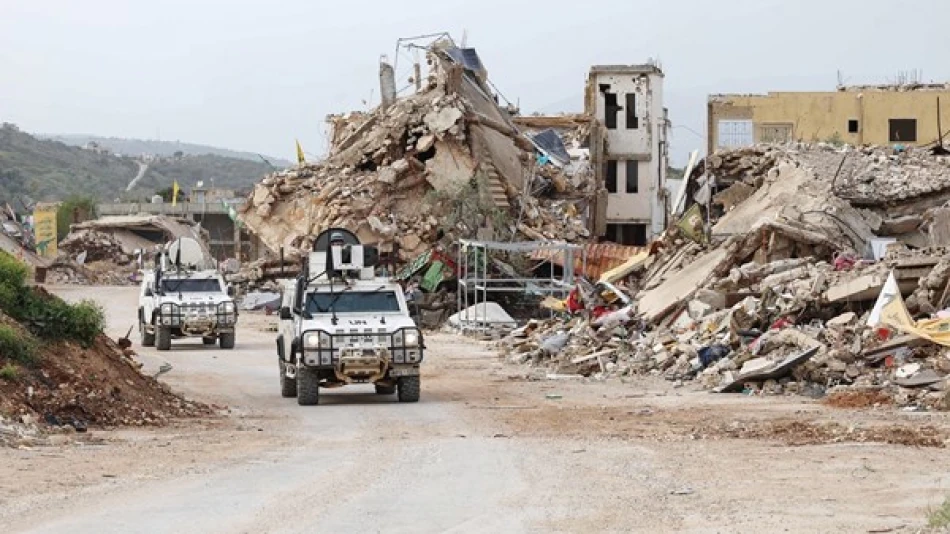
EU Provides Vital Funding to Aid Lebanon's Impacted Regions
EU Pledges $600 Million Aid Package as Lebanon Faces Critical Reconstruction Phase
The European Union has committed over $600 million in aid to Lebanon's damaged regions, signaling a major international effort to stabilize the country as it emerges from recent conflict. The funding package, announced to newly-elected President Joseph Aoun, targets critical infrastructure rebuilding while simultaneously strengthening Lebanon's military capacity to maintain security in the volatile south.
Beyond Humanitarian Relief: A Strategic Investment in Stability
This EU commitment represents more than traditional disaster relief. The funding deliberately balances immediate humanitarian needs with long-term structural support across education, healthcare, social protection, water infrastructure, and agriculture. Crucially, the package includes dedicated resources for job creation and private sector development—addressing Lebanon's chronic unemployment crisis that has fueled regional instability.
The timing is significant. Lebanon's economy has contracted by over 60% since 2019, making it one of the world's worst financial collapses in modern history. This EU intervention comes at a moment when the country desperately needs external capital to prevent further social breakdown.
Military Support Signals Security Priorities
A notable portion of the funding will strengthen the Lebanese Armed Forces' capabilities and deployment in southern Lebanon. This military component reflects European concerns about regional security following the November 2024 ceasefire agreement and ongoing tensions along the Israeli-Lebanese border.
EU ambassadors explicitly emphasized the "crucial role" of UN peacekeeping forces (UNIFIL) in maintaining stability, while calling for full implementation of UN Security Council Resolution 1701. This resolution, originally passed in 2006, requires the disarmament of all armed groups in southern Lebanon and exclusive state control over weapons—a direct reference to Hezbollah's military presence.
European Strategy in a Fragmented Region
The EU's substantial financial commitment positions Europe as a key player in Lebanon's reconstruction, potentially offsetting influence from regional powers like Iran and Saudi Arabia. Unlike previous aid packages that often stalled due to corruption concerns, this funding appears structured to bypass traditional Lebanese governmental channels while strengthening state institutions.
This approach mirrors successful EU strategies in post-conflict zones, where direct sectoral support has proven more effective than general budget assistance. The emphasis on private sector development particularly suggests European businesses may gain preferential access to Lebanon's eventual economic recovery.
Testing Ground for Regional Stability
Lebanon's strategic location makes its stability crucial for European interests, particularly regarding migration flows and regional security. The country hosts over 1.5 million Syrian refugees, and economic collapse could trigger new displacement toward Europe.
The success of this aid package will likely influence EU policy toward other fragile states in the region. If Lebanon can demonstrate effective use of these funds while implementing genuine security reforms, it could serve as a model for European engagement with post-conflict Arab states.
However, the ultimate test lies in Lebanon's ability to address the core issue EU ambassadors highlighted: ensuring exclusive state control over weapons. Without resolving this fundamental challenge, even substantial financial support may prove insufficient to achieve lasting stability.
Most Viewed News

 Layla Al Mansoori
Layla Al Mansoori






